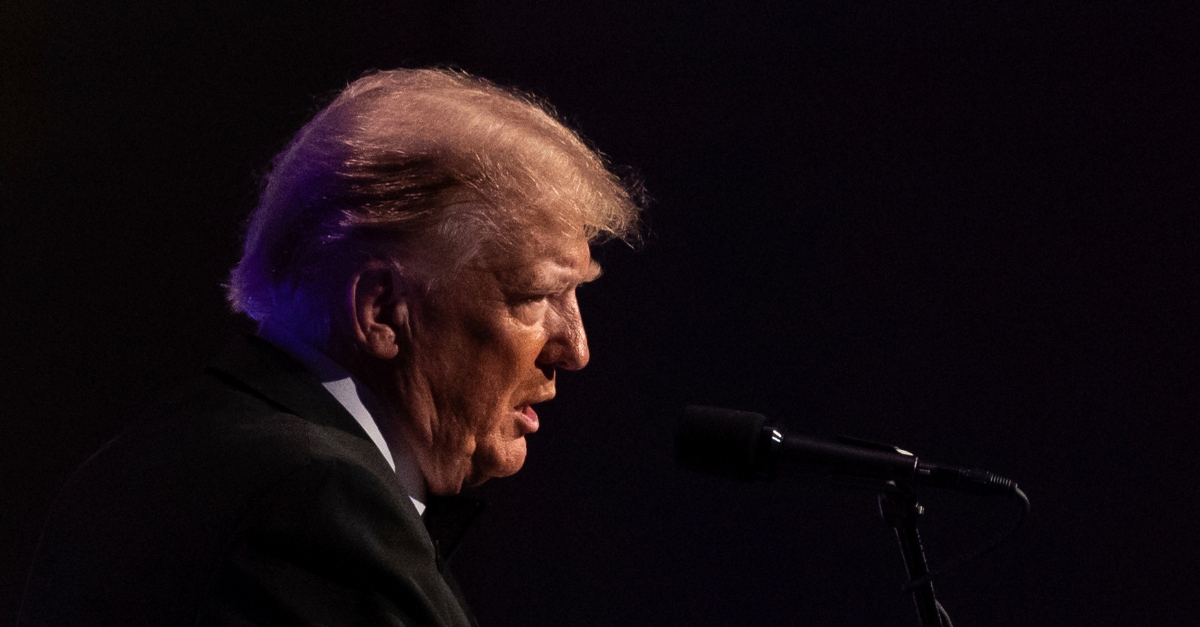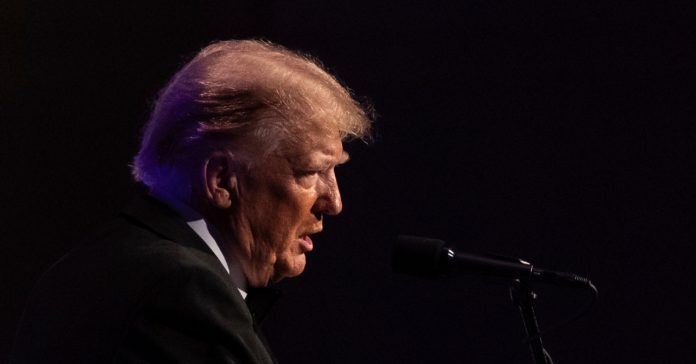
Former President Donald Trump speaks during the New York Young Republican Club’s annual gala at Cipriani Wall Street, Saturday, Dec. 9, 2023. (AP Photo/Yuki Iwamura)
Shortly after the U.S. Supreme Court refused to immediately take up the case, attorneys for former president Donald Trump filed their opening brief with the U.S. Circuit Court of Appeals for the District of Columbia.
They argue that the ex-POTUS is immune from prosecution in his Jan. 6 criminal case because the behavior in question was done under his official acts as head of state. Attorneys also argue that his victory in his second impeachment trial bars him from related criminal prosecution under the double jeopardy clause of the Constitution.
Trump is accused of trying to subvert and overturn the results of the 2020 presidential election — efforts that, according to special prosecutor Jack Smith, culminated in the Jan. 6, 2021, siege at the Capitol. On that day, thousands of Trump supporters violently breached the U.S. Capitol building as Congress had begun to certify Joe Biden’s win in the 2020 presidential election. Trump has argued that “absolute immunity” afforded him in his official duties as president precludes him from facing criminal charges.
U.S. District Court Judge Tanya Chutkan found he is not immune from prosecution under claims of presidential immunity or on constitutional grounds.
“Whatever immunities a sitting President may enjoy, the United States has only one Chief Executive at a time, and that position does not confer a lifelong ‘get-out-of-jail-free’ pass,” she wrote. “Presidents enjoy no special conditions on their federal criminal liability. Defendant may be subject to federal investigation, indictment, prosecution, conviction, and punishment for any criminal acts undertaken in office.”
As Law&Crime has reported, Smith tried to speed things along by asking the high court for a writ of certiorari before judgment from the U.S. Circuit Court of Appeals for the District of Columbia.
Although Smith acknowledged that his Dec. 11 petition for a writ of certiorari included an “extraordinary request,” the Trump prosecution itself “is an extraordinary case” akin to the question facing the Supreme Court in the 1974 case of United States v. Nixon, in which the justices granted certiorari before judgment and decided that “[n]either the doctrine of separation of powers nor the generalized need for confidentiality of high-level communications, without more, can sustain an absolute, unqualified Presidential privilege of immunity from judicial process under all circumstances.”
The court’s terse, single-sentence order issued Friday was unambiguous.
“The petition for a writ of certiorari before judgment is denied,” it said.
Appeals aside, the Jan. 6 siege criminal trial is tentatively set for March 4.
Marisa Sarnoff contributed to this report.
Have a tip we should know? [email protected]

